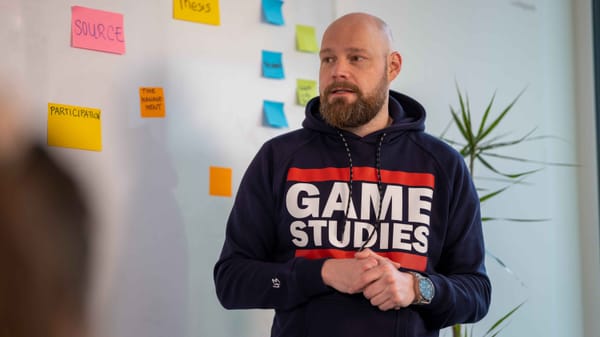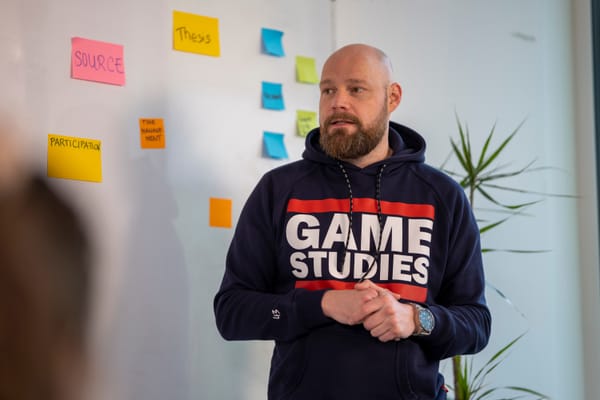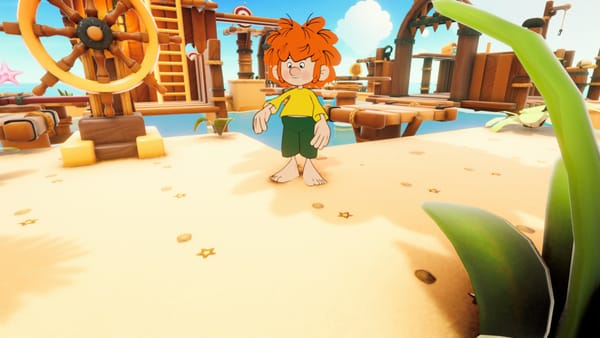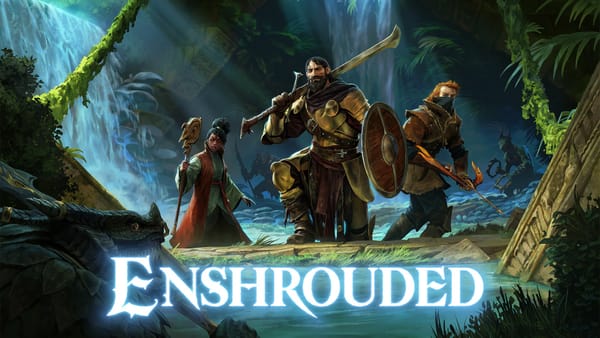DiGRA D-A-CH Game Studies Watchlist #35



World premiere: From now on, the Game Studies Watchlist newsletter of games research association DIGRA GSA will be published weekly on GamesMarkt, curated by Prof Dr Rudolf Inderst.
Now, of course you know Dan Olson aka Folding Ideas on YouTube. With over 1.03M subscribers, he is quite a popular essayist and I think my first encounter with his thoughts was his video on Minecraft, Dwarf Fortress, and Emergent Narratives (yeah, that’s December … 2011 😲). Without pushing too much of his monologues right now, you may consider taking a look at his video Folding Ideas Goes to PAX West 2016 and Comes Home With an Existential Hangover, where his smooth voice over will let you drift into a well-deserved sleep.
This time, Olson takes aim at Call of Duty: Ghosts. He understands this game as a thoughtless product that fails on every level: technically, narratively, mechanically, and ethically. Let’s take a look at his arguments, shall we?
(https://youtu.be/eKPM7cZORTE?si=JQliRfLgPxouEBkD)
As we can see, Olson first details the game’s troubled development, weakened by corporate strife and an unsustainable production cycle that led to significant technical debt. He dismantles the narrative as an incoherent and backwards-assembled plot, where set pieces were designed first and a story was contrived to connect them. This results in a hole-ridden script with clichéd dialogue and thin characters, wasting its Oscar-winning writer on "tortured stoic prose."
Olson also strongly dislikes the gameplay; he is describing it as a shallow "simulation of mechanics," where tools like the dog Riley are mere temporary gimmicks rather than deep systems. The game is sluggish, poorly designed, and punishes curiosity, making the player feel like an NPC on rigid rails. Visually, he condemns its monotonous brown and grey palette as exceptionally ugly. Most significantly, Olson attacks its political subtext, arguing the villain Rorke is a cowardly attempt to de-racialize a conflict about South America. The game sidesteps meaningful politics to instead reinforce American paranoia, framing the enemy as an invasive evil and justifying American aggression, which Olson finds repulsive.
Gamevironments is an international, interdisciplinary, open access academic journal for research on digital games. The journal publishes two issues per year, one regular issue and one special issue with a guest editor on a specific topic. Each issue consists of academic articles as well as other contributions, such as research reports, interviews, or game or book reviews. There is a new Special Issue Peripheral Religions out now, edited by Carolin Puckhaber, Aska Mayer and Knut V. M. Wormstädt.
Here’s a very personal observation: It is oddly striking that Germany, with its vibrant gaming culture and influential newspapers like Die Zeit or the Süddeutsche Zeitung, does not offer a newsletter comparable to Pushing Buttons from The Guardian. While German outlets occasionally report on video games, there is rarely a consistent, dedicated format that treats games not only as entertainment products but also as cultural, social, and political phenomena. Pushing Buttons succeeds because it combines expertise with accessibility, addressing both casual readers and enthusiasts, while framing games as part of a broader cultural conversation. A similar newsletter in Germany could enrich the media landscape by providing thoughtful, regular insights into an industry and art form that continues to shape society, but so far, such an initiative is still missing.
Yes, we know the drill by now! You, yes, YOU, are always right, while everyone else in the room and online is only right by chance and luck? Then prove it to us and create the ultimate list: Which year is the most significant in video game history?
For our German-speaking audience, I'd like to point to a new Call for Papers (after consultation with the editors, abstracts in English may also be submitted.). Ann-Kathrin Günther, Leonie Konietzko, Daniel Meis et moi are seeking your contributions to the GTA series for an interdisciplinary anthology, with a deadline of November 1, 2025. More info:
… and a little, tiny riddle at the end: What was created on December 15, 2003, in an, uhm, well-known collaborative encyclopedia?
Cheers and stay healthy,
Rudolf
You are welcome to share your ideas and feedback with me. If you like DiGRA D-A-CH Game Studies Watchlist, please tell your friends, colleagues, as well as fellowship and post on social media about it! Please support my work in game research & culture, consider contributing via Buy Me a Coffee.








